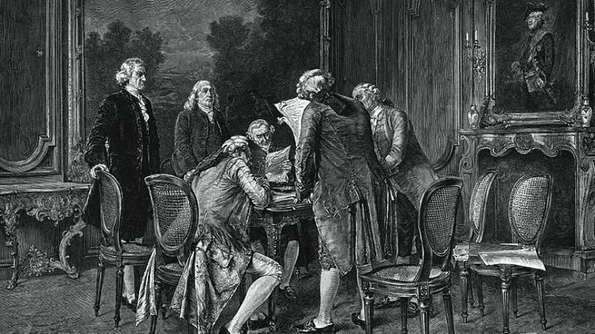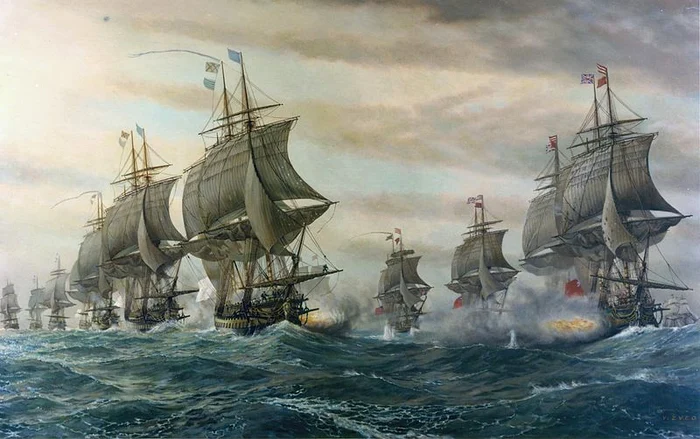
The alliance that won America’s independence: the USA, France and Spain against Great Britain
During the American War of Independence, the American leaders searched for allies in the battle against Britain. Their first option was, of course, France, Britain’s no. 1 enemy. Another possible ally was Spain, another European state dissatisfied with the British policy and that wanted to resettle older conflicts.
Signing an alliance treaty was crucial to the Americans for two reasons:firstly, France was, at the time, the second greatest naval power of the world, surpassed only by Britain;and secondly, a signed treaty meant that the new American state would be internationally recognized and a treaty with France could persuade other states in acknowledging USA’s independence.
The negotiations with the Parisian government materialized in a double treaty signed in 1778:a commercial one and a mutual assistance treaty in the war against Great Britain that stipulated that the two governments agreed to not sign a separate peace with the English, a promise that wouldn’t be held in the end.
What were the main objectives of the Franco-American alliance? First of all, the Americans wanted their independence recognized, while the French hoped to recover territories lost in 1763, after the Seven Years’ War. However, the French didn’t initiate any actions to reclaim their Canadian territories, in order to not endanger their relation with Washington. Also, the French leaders had economic objectives in the southern region of the USA, in the Antilles, where they wanted to retrieve the island of Santo Domingo, with its rich sugar cane fields.

America’s other possible ally was the kingdom of Spain, who had a lot of grudges against Britain. At the beginning of the 18thcentury, the great European powers had fought in the War of the Spanish Succession, after Britain and the other continental powers had opposed the idea of placing a Bourbon king (a French dynasty!) on the vacant throne. Ultimately, Louis XIV will lose this war, but the Great Powers end up agreeing to Philip IV of Bourbon being named King of Spain. The Spaniards’ discontent with the English date back from 1704 when, during the war, their conquered and occupied the Gibraltar (which is still in their possession today). As such, Spain was particularly in favour of a war against the British, and after the Seven Years’ War, it undertook – just like the French – a massive naval arming program in order to be able to face the enemy’s fleet.
The negotiations start in 1779, when John Jay is sent to Madrid to persuade the Spaniards to join the war against Britain. Surprisingly enough, despite their strong anti-British feelings, the Spanish leaders weren’t really ready to accept the American offer. The Spaniards were confronted with an important dilemma:on one hand, by joining the war, they could recover the Gibraltar, but on the other hand, the success of the American Revolution could seriously affect their Western colonies (which did happen in the end). Eventually, Spain decided to join the war, but wouldn’t gain much from it.
The years 1779 and 1780 brought numerous confrontations between the American and British armies (occupying New York, the taking of Charleston, the British surrender at Yorktown etc.) and the Brits were forced to spread out their forces because of the French and Spanish interventions in the Indian Ocean, the Gibraltar and the Antilles. Consequently, in 1783 Britain accepts signing a peace treaty, which would prove very favourable to France and Spain, the former receiving much more than it’d have been entitled to, and the latter recovering some of their lost territories. The English cede the Florida peninsula and Minorca Island to Spain and France receives the island of Tobago and the Senegal.
The English willingly renounced these territories just like they will eventually give up on the American colonies, realising that they can’t hold on to something that they can’t fully control. As such, the year of 1783 marks the end of the first British colonial empire.
As for the Anglo-American conflict, the two sides reach a preliminary peace accord in 1782:England accepts the colonies’ independence, but keep Canada as their main presence centre in the West. The peace treaty is signed in 1783, at Versailles, thus marking the official international recognition of the American independence.















